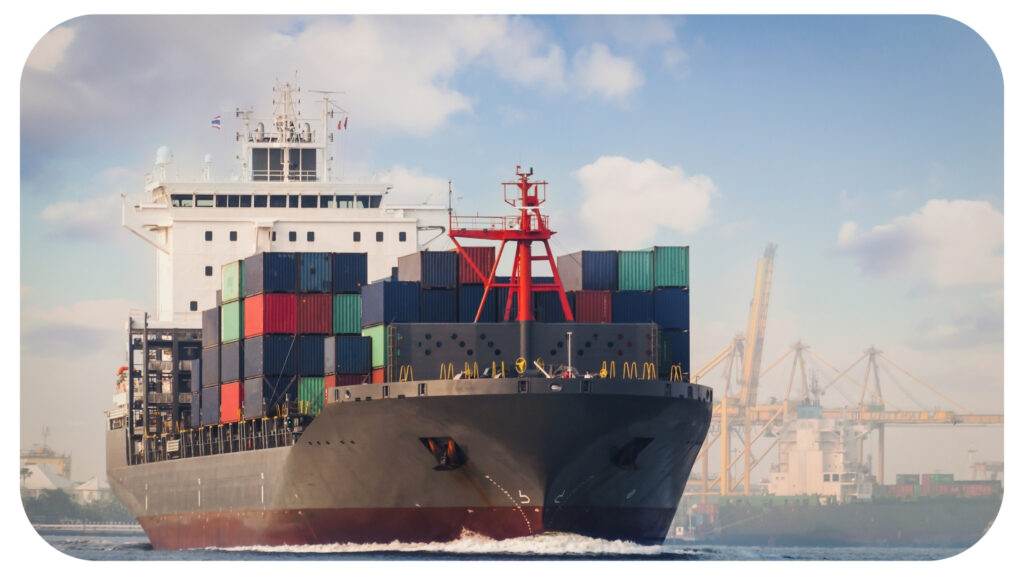6 Key Considerations for Efficient Sea Freight Operations

When managing sea freight operations, efficiency is key. The logistics involved in transporting goods across the oceans can be complex, with many variables to consider.
This blog post explores six critical considerations to help streamline your sea freight operations, ensuring they are as effective and smooth as possible.
1. Understanding and Optimising Route Management
Optimal route planning is crucial for the efficiency of sea freight operations. Navigating through less congested sea routes can significantly reduce travel time and fuel consumption. Logistics teams must stay updated on geopolitical situations, weather conditions, and port availability to adjust routes quickly and effectively. Additionally, utilising modern software that predicts and analyses maritime conditions can lead to more informed decision-making, thus optimising the routes.
Beyond just selecting the quickest route, consider the reliability of each route. Some may offer shorter transit times but could be more prone to delays due to weather or geopolitical tensions. Balancing speed with reliability can often yield better overall service than simply choosing the fastest route.
2. Cost Management Through Strategic Partnerships
Building strong relationships with shipping agents and other stakeholders is vital. Collaborative partnerships can lead to negotiated pricing and better terms, which significantly lower operational costs. It’s not only about finding the cheapest option but also about ensuring that the service level aligns with your logistical needs and business ethos.
In addition to partnerships, consider consolidating shipments to maximise container space and reduce costs. This strategy can be particularly effective for businesses that do not require the fast transportation of large volumes of goods. By consolidating goods into fewer shipments, companies can enjoy reduced rates and better management of shipping schedules.
3. Leveraging Technology for Enhanced Tracking and Management
Advancements in technology have revolutionised the tracking of sea freight. Real-time tracking technologies allow companies to monitor their shipments precisely, enhancing the transparency and efficiency of sea freight operations. These systems help identify and resolve delays and disruptions promptly, maintaining the flow of goods.
For instance, when requesting a sea freight quote, it is advantageous to use platforms that integrate these technological tools to provide not only cost estimations but also insights into shipment status and expected delivery timelines.
4. Compliance and Regulatory Knowledge
Ensuring compliance with international shipping laws and regulations is not just obligatory but strategic. Familiarity with customs procedures, import and export regulations, and environmental standards helps prevent costly delays and legal issues. This knowledge is also crucial in maintaining good relationships with customs authorities, which can facilitate smoother clearance.
Continual training for staff on regulatory changes and best practices in compliance can keep your operations both lawful and efficient. It’s beneficial to have dedicated team members who specialise in understanding and managing these regulations.
5. Environmental Considerations and Sustainability Practices
Sustainability in sea freight is becoming increasingly important as environmental regulations tighten and consumer awareness grows. Implementing green practices, such as using fuel-efficient ships, reducing container usage, or participating in carbon offset programs, can not only reduce environmental impact but also enhance the company’s reputation.
Moreover, these practices can lead to cost savings over time. For instance, investing in more efficient fuel technologies may be costly upfront but can reduce fuel costs and potential future environmental compliance costs.
6. Customer Service and Communication
Effective communication with clients is essential in managing expectations and building trust. Providing customers with timely and accurate information about their shipments can greatly enhance satisfaction. Implementing a robust system for customer interaction ensures that clients are kept in the loop regarding their shipments, which is crucial during delays or other issues.
A responsive customer service system can turn logistical challenges into opportunities to demonstrate the company’s commitment to service quality. Proactive communication is often as important as the logistical operations themselves.
Each of these six considerations is crucial for improving the efficiency and reliability of sea freight operations. By focusing on these areas, companies can not only enhance their operational capabilities but also improve customer satisfaction and compliance with global standards.
Recommended For You
Benefits of a Merchant Site for Your Promotional and Branded Products
Most Inside
Most Inside offers high-quality recommendations and valuable updates to enhance all aspects of your life, providing premium guidance and enriching experiences.




